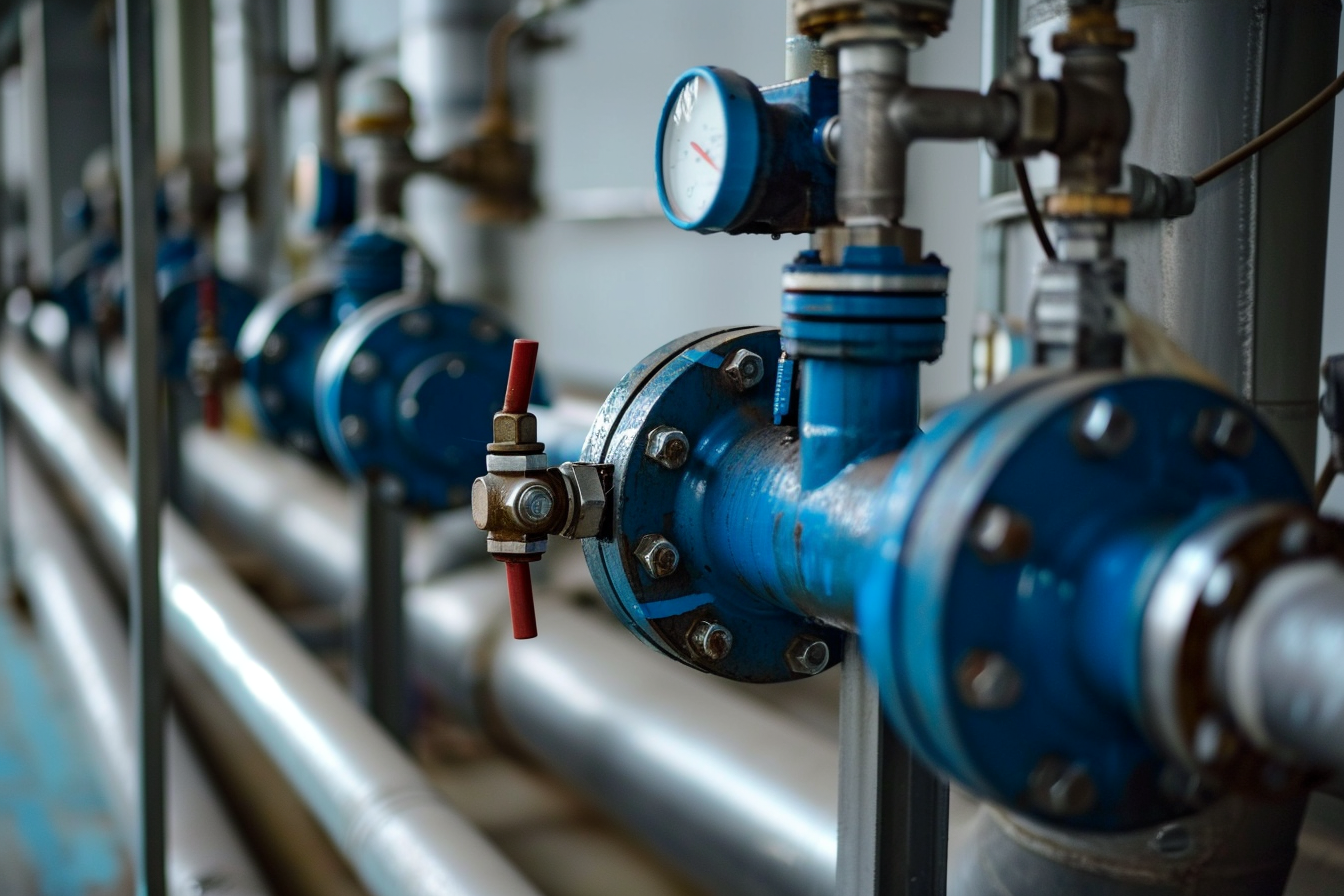
A viscous fluid is a liquid that resists flow due to internal friction between its molecules. This resistance is what we call viscosity—the property that causes some liquids to be “thick” (like honey, ppd or syrup) and flow slowly, while others are “thin” (like water or methanol) and flow easily. The higher the viscosity, the greater the friction and resistance to flow.
Viscous fluids have molecules that are tightly bound together, making them harder to move past one another. Temperature affects viscosity: heating usually makes liquids less viscous (more runny), while cooling makes them more viscous (thicker). In engineering and industry, understanding a fluid’s viscosity is crucial, as it impacts flow rates, pumping requirements, lubrication, and many other processes.
Navigating Viscosity: Flow Meter Solutions for Accurate Measurements in High (and Low) Viscosity Liquids

Introduction
The role of a chemical injection instrument engineer is one of precision — where every drop matters. Picture yourself at the centre of an oilfield, responsible for injecting chemicals that fine‑tune production performance. In this delicate balance of fluid control, selecting the right flow meter is like choosing a dependable compass. It must guide you through the shifting tides of viscosity, ensuring operations run with accuracy, consistency, and efficiency.
Unveiling the Statistics
Industry data confirm that the accurate measurement of both high- and low-viscosity liquids is essential in oil and gas operations. Positive displacement flowmeters are proven leaders in this area, delivering superior accuracy. According to manufacturer surveys, they achieve better than ±2% accuracy across the viscosity spectrum — outperforming many alternative technologies.
Rotary Piston – Versatility Beyond Viscosity
Within the family of positive displacement meters, the rotary piston design stands out for its adaptability. Equally capable with thick crude oils and lighter chemical additives, it provides engineers with dependable accuracy regardless of fluid characteristics. This versatility makes it a valuable tool for chemical injection applications where conditions frequently change.
Partnering with Oil Majors for Efficiency
By measuring accurately across a wide viscosity range, rotary piston meters help optimise chemical injection, reduce waste, and lower costs. The result is more efficient, sustainable operations that meet both production targets and environmental commitments.
Conclusion
In the oil and gas industry, where every decision impacts performance, mastering viscosity measurement is crucial. Positive displacement flowmeters, and particularly rotary piston designs, offer the accuracy engineers need to maximise efficiency. The right choice of meter is not just a purchase — it’s a commitment to precision.

What are the pitfalls when measuring viscous liquids?
When measuring viscous liquids, several pitfalls can compromise accuracy and reliability. Below are ten of the most common issues:
Temperature Sensitivity
Viscosity is temperature‑dependent. Even small temperature changes can alter liquid behaviour, so controlling and maintaining a consistent temperature is essential for comparable results.
Shear Rate Sensitivity
Viscosity often varies with shear rate. Different methods may apply varying forces, creating result discrepancies. Understand and control shear rate for accuracy.
Equipment Calibration
Regular, correct calibration is vital. Poor calibration quickly leads to inaccurate readings.
Contamination
Impurities or particles can distort viscosity measurements. Ensure liquids are contaminant‑free before testing.
Non‑Newtonian Behaviour
Complex fluids such as suspensions or polymers may change viscosity with shear. Specialised techniques are needed for accurate measurement.
Instrumental Limitations
Use instruments within their designed viscosity range—exceeding limits reduces accuracy.
Sample Handling
Air bubbles or uneven loading affect results. Handle samples carefully and consistently.
Time Dependence
Some fluids change viscosity over time; account for this in testing.
Instrument Cleaning
Residual samples can contaminate subsequent tests. Clean thoroughly between measurements.
Data Interpretation
Understand the fluid’s rheological model to accurately interpret readings. Misunderstanding behaviour leads to errors.
Adhering to correct methods, matching instruments to the application, and maintaining equipment will help avoid these pitfalls and ensure dependable viscosity data.
So, how do we select the right flow meter?

Selecting the Right Flow Meter for Viscous Fluids
Choosing a flow meter for viscous fluids demands careful assessment of fluid properties, application needs, and meter suitability. Getting this decision right ensures dependable measurement in challenging conditions.
1. Viscosity Range
Start by confirming the flow meter is suited for the full viscosity range of your fluid. Some designs excel at low viscosities, while others are specifically engineered to handle thicker liquids.
2. Fluid Compatibility
Meter materials must match the chemical and physical properties of the fluid. Check for corrosion resistance, chemical compatibility, and resilience against any abrasive particles that could cause wear or damage.
3. Flow Rate Range
Determine your process’s typical and maximum flow rates. Select a meter that operates accurately and reliably within that range for consistent results.
4. Temperature and Pressure
Match the meter’s specifications with your operating temperature and pressure conditions. Not all meters are built to cope with extremes, so confirm these parameters before installing.
5. Accuracy Requirements
Define how precise your measurements need to be. Different meter technologies offer different levels of accuracy; select one that meets your process’s demands.
6. Installation Requirements
Review space constraints and installation needs. Consider pipe orientation, available straight pipe lengths, and any access issues that may affect setup or performance.
7. Maintenance and Cleaning
Viscous fluids can build up and affect readings. Prioritise meters designed for easy maintenance and cleaning to minimise downtime and maintain accuracy.
8. Type of Flow
Decide whether you need to measure continuous or pulsating flow. Some meters handle pulsating flows better than others, which is important in certain process conditions.
9. Type of Measurement
Choose whether you need volumetric flow, mass flow, or another parameter. Select a meter specifically designed for your desired measurement type.
10. Power Requirements
Assess the availability and suitability of power sources—some meters need external power, while others run on batteries.
11. Cost Considerations
Balance your budget with operational and maintenance costs. Initial price matters, but long-term reliability, servicing, and accuracy deliver real value.
12. Consult with Experts
If in doubt, seek advice from manufacturers or specialists. Their insights can highlight the best options for your specific scenario.
13. Industry Standards
Ensure the meter complies with all relevant standards and regulations, especially in industries where certification is mandatory.
By weighing these considerations—fluid characteristics, process needs, and meter features—you’ll select the right flow meter for accurate, reliable results in your viscous fluid application.
Have any questions? We are always open to talk about your business, new projects, creative opportunities and how we can help you.
